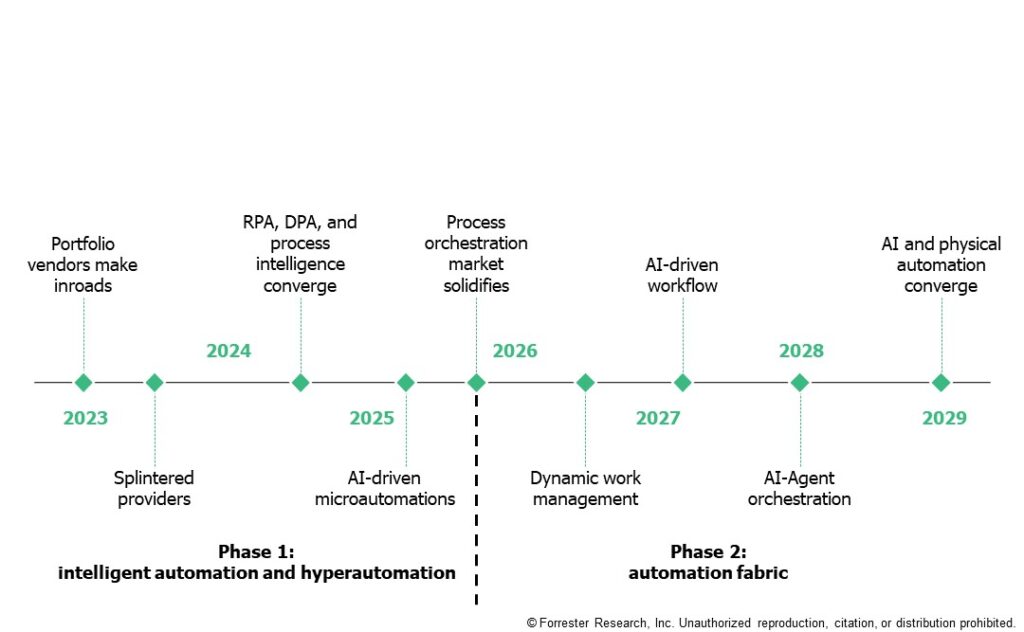Will RPA Platforms Remain Relevant? AI Agents May Hold The Answer.
Robotic process automation (RPA) companies have embraced generative AI (genAI) technology to keep pace with competition from OpenAI, Google, countless startups, and incumbent portfolio vendors. They have demonstrated how it can build bots and create document extraction models, arrange complex business travel, and provide guidance in health care. Yet, many Forrester clients are skeptical that RPA companies can remain relevant in this brave new genAI world. I think they can, and I’ll give you my top six reasons:
- LLMs will be adopted first as micro automations, providing low-level cognitive support. A lot of that will be in operational or back-office processes, the RPA sweet spot. In fact, we’ll see genAI start to select RPA bots or digital process automation (DPA) workflows to run as early as 2025 (see Figure 1).
- The platforms are well suited to build advancing AI agents that act on behalf of enterprises or individuals, without extensive programmed rules. AI agents are a significant technology trend. They make decisions and act with varying degrees of independence to perform a service. In one example, an RPA-based agent receives alerts from a bank’s anti-money laundering system. It prepares a dossier of public and private data in response and completes a Level 1 investigation. A high percentage of false positives are eliminated.
- RPA platforms have the architecture to manage thousands of automations, which bodes well for central management of AI agents as they proliferate. RPA vendors have invested in process intelligence to provide “dynamic work management,” and by 2026 we think data mined from the running process can manage work between humans and AI agents.
- Thousands of companies are well established with RPA platforms and will be open to using them for LLM-infused agents to leverage their investment.
- RPA has grown in part because of its ability to integrate easily with existing work patterns through UI integration. This will remain valuable for more intelligent agents going forward. The RPA leaders are investing in AI-driven workflows to provide stronger end-to-end orchestration, projected to be in widespread production by 2027.
- The biggest challenge to genAI in this context is trust and data security. RPA platforms have been wrestling with how to govern automations for over a decade now. For example, one challenge is to safely manage the human credentials that bots use to access core systems, new territory for genAI startups and hyperscalers.
While all six reasons paint a bright future for RPA platforms, the second reason stands out as the most critical. To stay competitive with the wave of AI-powered agent products from OpenAI, Google, and countless others, RPA platforms must position themselves as the go-to solution for building, deploying, and managing these intelligent agents. The hyperscalers and startups will be more generic, not as use case specific, and likely lock a buyer into a specific platform. By remaining agnostic and packaging as domain-specific AI agents, RPA platforms and their service partners can be successful.
Figure 1 Progression Of Automation Tools Market

